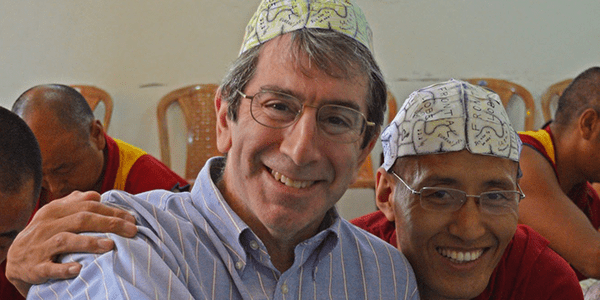UW Bioengineering Research Associate Professor Dr. Eric Chudler recently returned from a trip to Dharmsala, India to teach Tibetan Buddhist monks and nuns about neuroscience.
During Dr. Chudler’s visit, the monks and nuns learned about brain anatomy and physiology, and about the role of the brain in controlling the senses, learning, perception and consciousness. Dr. Chudler also led debates about ethical issues in neuroscience, posing such questions as “If a drug made you smarter, should it be made available?” and “If you knew that you were going to get a neurological disease such as Alzheimer’s disease in the future, would you want to know now?” Through Dr. Chudler’s lessons about the function and role of the brain, the nuns and monks gained further insight into what it means to be human and how to help others.
Dr. Chudler has visited Tibetan Buddhist monks in India since 2011 through his involvement with the Science for Monks program, a project that connects Western educators with the exiled Tibetan monastic community. The program develops the leadership needed to grow and sustain science learning that engages Buddhism with science, and to disseminate the work of the monastic community and their unique perspective on science and spirituality. The project is a direct result of the Dalai Lama’s long-term personal interest in science. Learn more about the Science for Monks program.


